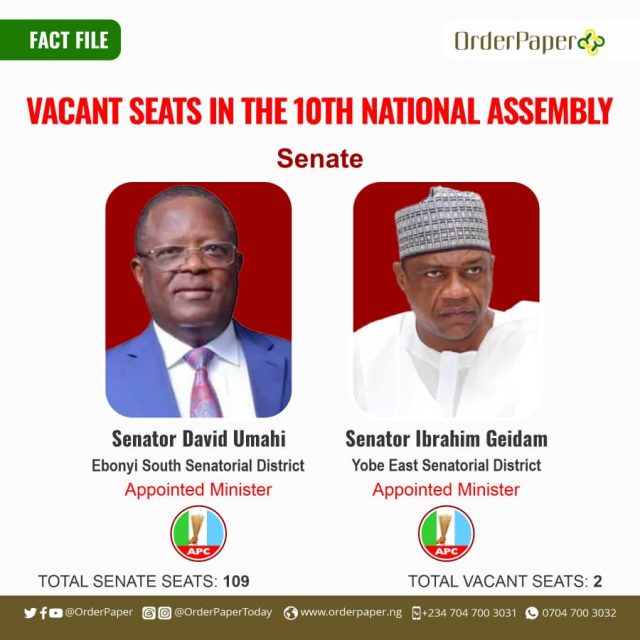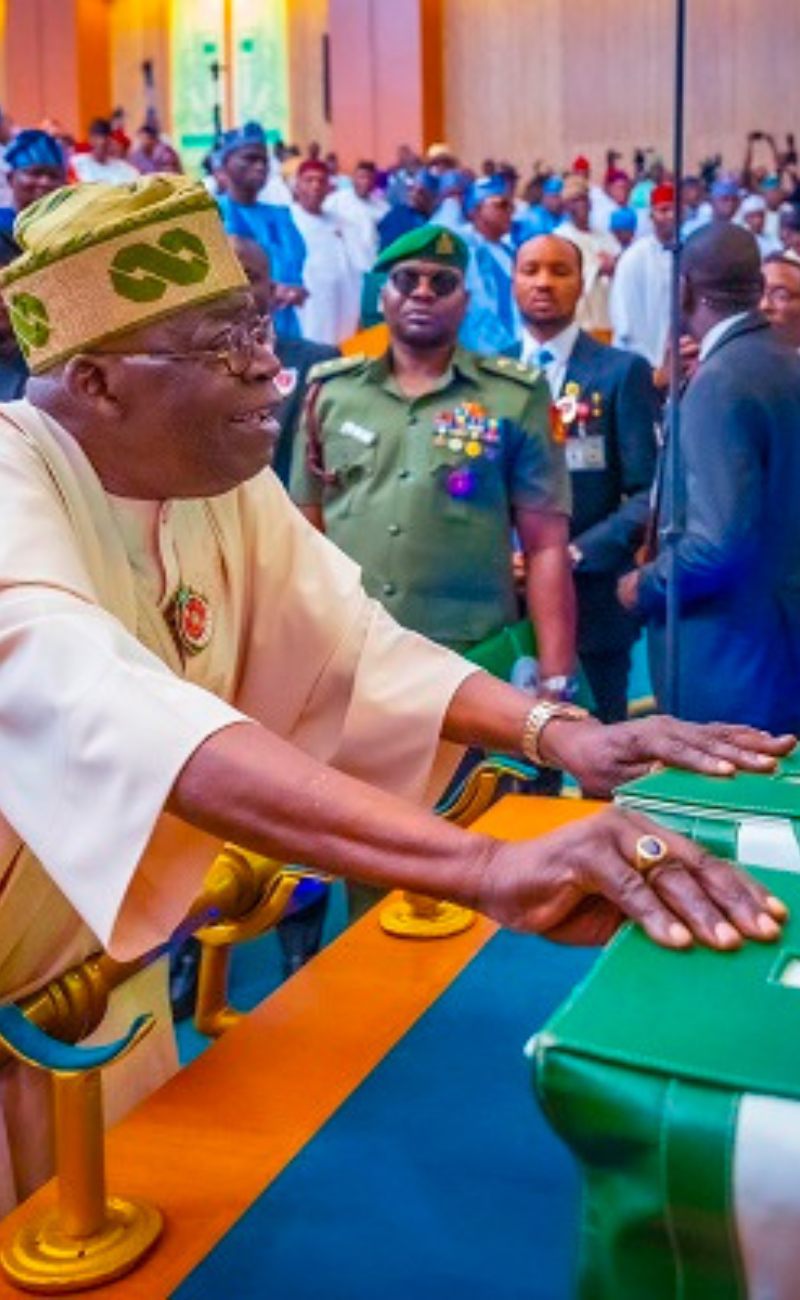Eighteen (40%) out of President Tinubu’s 45 Ministers are persons with either local, state or federal legislative experience. With four (4) of these sixteen (16) Ministers holding legislative seats up until their inauguration on Monday, what are the implications for the National Assembly?
READ ALSO: 10TH NASS: At first plenary, Speaker Abbas declares lawmaker’s seat vacant

After eighty-three days in office as President, President Bola Tinubu this Monday formally inaugurated forty-five (45) Ministers screened and confirmed by the National Assembly into the Federal Executive Council (FEC).
The list of Ministers, which includes 18 (40%) persons with a legislative background, was sent in two batches to the National Assembly on the sixtieth (60th) day after President Tinubu’s inauguration in line with a recent amendment to the 1999 Nigeria’s Constitution requiring the President to submit Ministerial Nominees for screening and confirmation within sixty (60) days.
Following this development, however, four seats have now become vacant in the National Assembly, in addition to two seats previously declared vacant as a result of the resignation and death of two occupants.
Shortly before his inauguration into the Tenth National Assembly, Hon. Ismaila Yushau Maihanci; Lawmaker-elect for Jalingo/Yorro/Zing Federal Constituency in the House of Representatives, passed on; while a former Speaker of the House of Representatives, Femi Gbajabiamila, resigned his membership of the Green Chamber. Although Gbajabiamila was inaugurated as a Member of the Tenth House of Representatives on Tuesday, June 13 2023, he will later be appointed Chief of Staff to the President, prompting his resignation.
READ ALSO: OBITUARY: Ismaila Maihanci Yushau, the lawmaker-elect who took Taraba by storm
Four members of the current National Assembly inaugurated as Ministers whose seats are now vacant include Senator David Umahi (Ebonyi Soth), who doubled as Deputy Leader of the Senate until Monday, and Senator Ibrahim Geidam (Yobe East), both of whom are former governors of their respective states. While Senator Umahi was appointed Minister of Works in the Federal Executive Council, Senator Geidam was appointed Minister for Police Affairs.

READ ALSO: Ministerial Screening: Senator Dave Umahi | Nominee with legislative background
Similarly, the seats of Hon. Olubunmi Tunji-Ojo (Ondo State) and Hon. Yusuf Tanko Sununu (Kebbi State) representing Akoko North East/Akoko North-West Federal Constituency and Yauri/Shanga/Ngaski Federal Constituency respectively are now vacant increasing the House of Representatives tally to four.
While Hon. Tunji-Ojo was appointed Minister of Interior, his Kebbi counterpart was appointed Minister of State for Education.
According to Section 68 (1) (d) of the 1999 Constitution of the Federal Republic of Nigeria (As Amended), “Where a member of the National Assembly or of a House of Assembly is appointed as Minister of the Government of the Federation, he shall be deemed to have resigned his membership of the National Assembly or of the House of Assembly on his taking the oath of office as Minister.”
In the same vein, Section 147 (4) of the 1999 Constitution of the Federal Republic of Nigeria (As Amended) spells out that “A member of the Senate or of the House of Representatives shall vacate his seat in the House of which he is a member if he becomes a Minister of the Government of the Federation or a Commissioner of the Government of a State or a Special Adviser.”
All eyes will now be on Nigeria’s election management body; the Independent National Electoral Commission (INEC) to conduct a bye-election into the affected Federal Constituencies and Senatorial Districts to ensure proper representation of their constituents in the federal parliament.
READ ALSO: Career Opportunities: OrderPaper is hiring | Sales & Marketing Officer




One comment
Okere James
August 28, 2023 at 9:45 am
Good day,
Did H.E Dave Umahi tender is resignation letter to the red Chambers before he took the oath of office as a minister?..